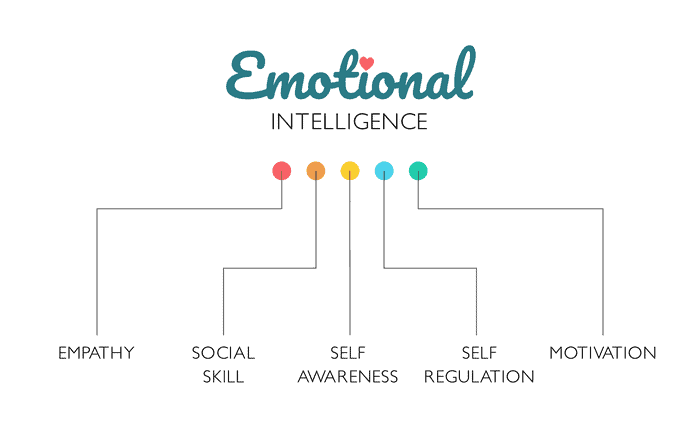Studies have shown that students who have higher levels of emotional intelligence are more successful academically. So what exactly is emotional intelligence and what are some of the emotional intelligence activities that you could implement today to help students develop emotional intelligence?

The Five characteristics of emotional intelligence
American physiologist Daniel Goldman helped popularize the term “emotional intelligence” with a book of the same title. In it, he explores the 5 facets of emotional intelligence, which is also known as the ability to manage your own, and others’, emotions. The five tenets of emotional intelligence include:
- Self-awareness: this applies to knowing your strengths and weaknesses, and how your emotions affect those around you. Doing daily mindfulness activities can help with developing self-awareness.
- Self-regulation:how can you stay in control even when you’re feeling stressed, tired, or angry?
- Motivation: working towards a goal with consistently high standards.
- Empathy: the ability to look at things from someone else’s perspective.
- Social Skills: managing and resolving conflict effectively and also promoting a positive environment.
If you ask a classroom teacher to boil down the main components of highly successful students, many of these same characteristics would apply. The reverse is said about students who struggle academically, socially, or emotionally in the classroom—they struggle with one or more of these emotional intelligence activities. How can teachers at all grade levels incorporate these skills into their daily lessons?

Emotional intelligence activities at the elementary level
Young people sometimes struggle with emotional self-regulation. When they feel anger, sadness, and frustration, they lack the emotional tools to handle these big feelings and the end result is often a loud, ugly tantrum. One tool that helps elementary students regulate their emotions is to name what they’re feeling. This allows a young child to put a word to the emotion they’re feeling, and also validate that they’re having a hard time. Once the emotion is named, ask the child to notice what they’re thinking and feeling. Then, it’s time to re-direct the emotion into something more positive. Have students rub their forehead and explain that it’s time to let go of that negative emotion and come up with an alternative plan. This is a self-soothing technique that gives young learners a chance to identify and acknowledge what they’re feeling, then move forward.
Another way for young children to improve emotional intelligence is to practice mindfulness. Mindfulness helps us understand our feelings and thoughts. Including mindfulness practice pages in your student planners is an excellent way to help students improve self-awareness.
Emotional intelligence activities at the middle levels
Talk to any parent of a teenager and they’ll tell you that this age often brings a lack of motivation for schoolwork. Even students who were successful in their elementary years find some stumbling blocks as they navigate both hormones and an increased workload in middle school. Just earning a gold star on an assignment is no longer enough motivation for these mercurial adolescents. Teachers, one great way to increase motivation is to find the relevance of the assignment or unit you’re presenting. Can you make real-world connections to some ideas you’re covering? Or can you incorporate students’ interests into your lesson plans? Students who feel connected to the work they’re doing are more likely to feel motivated to complete that work.

Emotional intelligence activities in upper grades
Teens are in the wonderful intersection of realizing the world around them in a new way, and still being very self-centered. Having students empathize with others is a skill that they’ll need to navigate not only throughout their school and work years but also in all of their personal relationships as well. A great way to do this is through in-class discussions and paraphrasing. Many times, students are so focused on what they want to say about a topic that they’re not really listening to what someone else has to say.
Before students are allowed to voice their own original ideas, have them paraphrase what the student before them said. Begin with “What I think I heard you say was…” and then let the student finish what they heard. If the paraphrasing is correct, then the student can voice their own opinion. If the paraphrase is incorrect, it gives the original speaker a chance to correct or clarify what they meant. These close listening techniques let students really hear what someone else is saying, which leads to a deeper understanding of why others have different opinions and viewpoints than they do.
Teaching students using emotional intelligence activities will provide a solid foundation not only for students’ academics but also for their future careers.